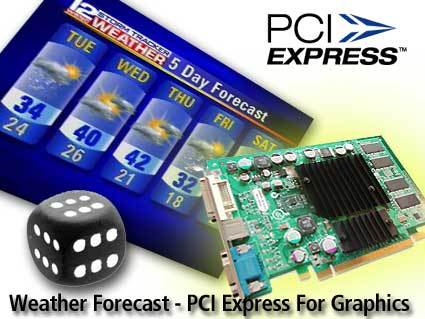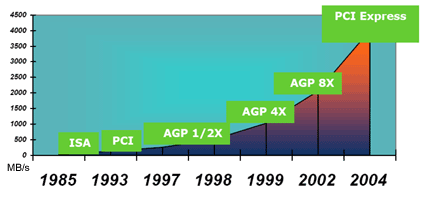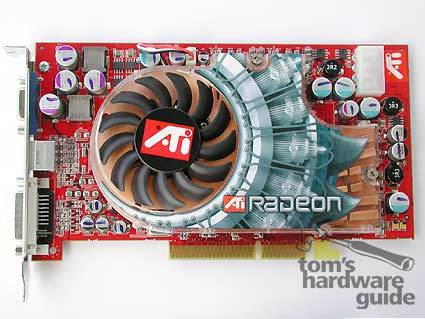Future Promise for Graphics: PCI Express
Introduction
Much has happened since the beginning of the 1990s: there was the first war with Iraq, the collapse of the Soviet Union, the presidency of Bill Clinton and the age of the parallel PCI bus, which has been part of everyday life in the (x86) computer world since it replaced the older ISA bus. Not much has changed since then. Okay, so there was another war in Iraq, the US has declared an "Axis of Evil" and Mr. Bush Jr. has replaced Mr. Clinton. But as far as the PCI bus is concerned - it's still going strong. And why shouldn't it? Until very recently, it's always been fast enough for the components it was supposed to handle, from sound cards, I/O components and USB to hard-drive controllers. As graphics cards came to require more bandwidth, the AGP interface was introduced, which has been accelerated several times since its first showing.
However, for modern motherboards, PCI's limited bandwidth of about 132 MB/s, which is shared by all PCI slots in a system, has become a bottleneck. More and more often, ever faster components such as graphics cards, hard drives, USB data transfer and Gigabit Ethernet find themselves choked for bandwidth as several devices try to send data over the bus at once. Of course, in many modern chipsets, some of these devices are no longer attached to the rest of the system via PCI - take for example Intel's CSA interface for gigabit Ethernet on the i875 chipset. Yet in the long run it would seem like a smarter solution to come up with a newer, better, faster and more flexible interface to resolve this problem instead of investing this much effort into designing proprietary solutions that only circumvent it.
A current AGP 8x card, the ATI Radeon 9800 XT.
Graphics cards are not yet faced with the same dilemma. The AGP bus, developed specifically for graphics cards in the mid 1990s, offers a bandwidth of 2 GB/s in its incarnation (AGP 8x), which should leave quite a bit of headroom even for future developments. Nonetheless, a newer bus could pay off as a long-term investment here as well. After all, 640K are NOT enough for anyone, if you get my drift.
Get Tom's Hardware's best news and in-depth reviews, straight to your inbox.


